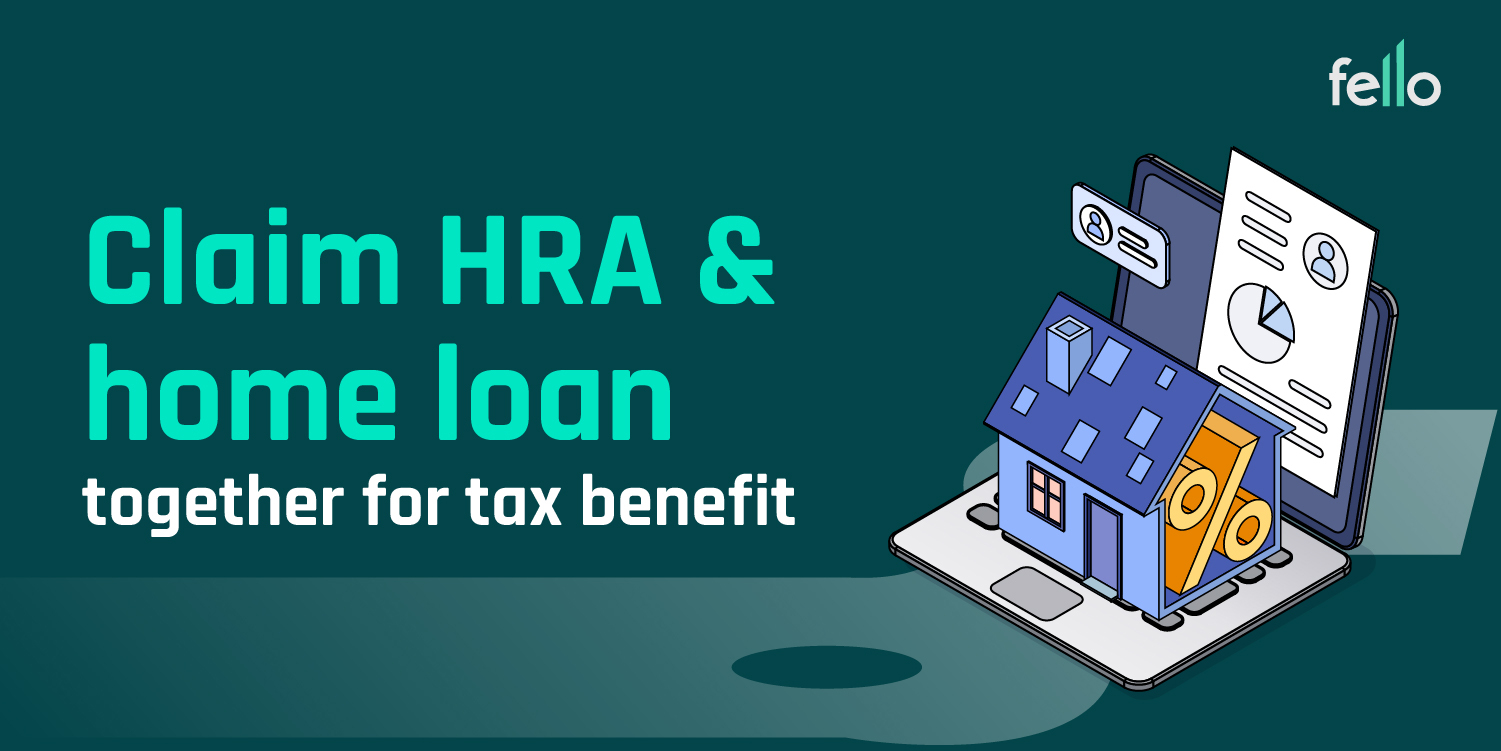Hey there, homeowners with an extra perk of getting House Rent Allowance (HRA)! We’ve got some exciting news for you – you can actually double your tax-saving benefits and keep more of your money! It’s time to explore the magic of claiming both HRA and Home Loan Deduction to make your tax worries disappear. This duo can help you lower your taxable income and save a whole lot of money. In this blog, we’ll walk you through the simple steps of claiming both HRA and Home Loan Deduction, making taxes way lesser and boosting your savings like a pro! So, get ready to learn this superpower of tax-saving, and let’s make your savings shine!
Tax Benefits
Homeowners who are repaying their home loans and receiving House Rent Allowance (HRA) as part of their salary can take advantage of multiple tax benefits related to their property, helping them reduce their taxable income. In certain scenarios, individuals may be working in one city while renting a place, while their family resides in another city, and they decide to purchase a home where their family lives. As a homeowner, they can claim the following tax benefits:
- HRA exemption for the rent paid towards their rented accommodation.
- Deduction on the home loan interest under Section 24 of the Income Tax Act.
- Deduction on the principal repayment of the home loan under Section 80C of the Income Tax Act.
Example
Let’s take an example of Gaurav, who resides in Bangalore and pays a monthly rent of Rs 10,000. His employer provides him with an HRA (House Rent Allowance) of Rs 15,000, and his basic salary is Rs 40,000. On the other hand, Aryan has taken a home loan for a house in Bangalore, where his parents currently live. The interest he pays on this home loan amounts to Rs 20,000 per month.
Now, Aryan can claim HRA exemption using the following criteria:
- HRA received: Rs. 15,000
- 40% of Basic since he lives in Gurgaon: Rs. 16,000
- Rent paid minus 10% of Basic: Rs. 10,000 – Rs. 4,000 = Rs. 6,000
Out of these three values, the minimum amount will be considered for HRA exemption. So, Aryan can exempt Rs. 6,000 from his HRA. The remaining HRA of Rs. 15,000 – Rs. 6,000 = Rs. 9,000 will be added to his taxable income under Salaries on account of HRA.
Home Loan Interest Deduction and Net Loss
Let’s break down Gaurav’s situation regarding the income from the house property and the deduction on the interest of his home loan:
- Gross Annual Value (GAV) of the property is Nil since his parents live in the house property.
- Gaurav can claim a deduction on the interest on his home loan, which amounts to Rs. 2,00,000. However, this deduction is limited to Rs. 2,00,000 for a self-occupied house.
- Consequently, the Net Loss under the head ‘Income from House Property’ is (-) Rs. 2,00,000, and this loss will be added to his taxable income.
In summary, due to the Gross Annual Value being Nil and the deduction on home loan interest being limited to Rs. 2,00,000 for a self-occupied house, Aryan ends up with a net loss under the ‘Income from House Property’ category, which will be included in his taxable income.
Step by Step Process
here are the steps on how to claim both HRA and home loan deduction:
- Meet the eligibility criteria. You must meet the following eligibility criteria to claim both HRA and home loan deduction:
- You must be an employee and receive HRA as part of your salary.
- You must own a house in another city, and not stay in it.
- You must have taken a home loan to purchase the house in another city.
- You must not sell the house within five years of taking the home loan.
- Calculate your HRA exemption. Your HRA exemption is calculated as the difference between the actual rent paid by you and the basic salary that you would have received if you were not eligible for HRA.
- Calculate your home loan interest deduction. Your home loan interest deduction is calculated as the interest paid on your home loan, up to a maximum of Rs. 2 lakh per year.
- Claim the deduction in your income tax return. You can claim the HRA exemption and home loan interest deduction in your income tax return. You will need to provide the following documents to support your claim:
- Proof of your salary, such as a salary slip or Form 16.
- Proof of your home loan, such as the home loan agreement and the EMI statements.
- Proof of the rent paid by you, such as rent receipts.
- File your income tax return. Once you have claimed the deduction in your income tax return, you need to file your income tax return. You can file your income tax return online or offline.
Way Forward
In conclusion, the answer to the question “is claiming both HRA and home loan deduction when filing taxes possible?” is a “Yes!” Homeowners who are paying back their home loans and receiving HRA as part of their salary can indeed benefit from both these tax advantages simultaneously. By claiming HRA exemption for their rented accommodation and availing deductions on home loan interest under Section 24, they can significantly lower their taxable income, leading to potential savings.
Optimizing tax benefits is a smart way to increase one’s disposable income, and this is where Fello can play a crucial role. Most safe assets you invest in provide an average return of 6-7%. If you want to get more stable returns on your savings you can consider Fello. Fello’s innovative saving platform empowers individuals to make their savings work for them, providing returns upto 12% with their assets Fello Flo and Digital Gold. So what are you waiting for! Start saving today!.

